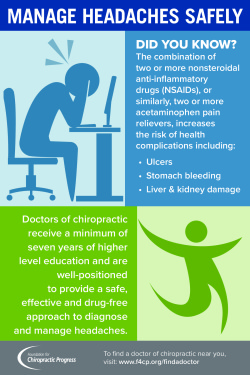Comprehending Nutrition'S Duty In Pain In The Back Management: Beneficial Foods And Foods To Stay Clear Of
Comprehending Nutrition'S Duty In Pain In The Back Management: Beneficial Foods And Foods To Stay Clear Of
Blog Article
Check This Out By-Livingston Lockhart
When it comes to managing your pain in the back, the food selections you make can substantially impact how you feel on a daily basis. Visualize being able to relieve your pain just by readjusting what you consume. By understanding the function of nutrition in pain in the back management and knowing which foods to integrate or stay away from, you can take aggressive actions in the direction of a healthier and much more comfy way of life. The connection in between nutrition and back health is a lot more extensive than you may realize-- let's check out exactly how certain foods can either soothe or exacerbate your back pain.
Relevance of Nutrition in Back Pain
Nutrition plays a crucial duty in taking care of pain in the back. Your diet can dramatically impact swelling degrees and general discomfort levels in your back. Taking in a balanced diet abundant in nutrients like vitamins D and K, calcium, magnesium, and omega-3 fats can help reduce swelling and reinforce bones, which are necessary for back health and wellness.
Furthermore, maintaining a healthy and balanced weight via proper nourishment can reduce tension on your spine, lowering the danger of back pain.
Furthermore, lower back pain causes female like antioxidants discovered in vegetables and fruits can help fight oxidative stress and advertise healing in the body, including the back muscles and back.
On the other hand, taking in too much amounts of processed foods, sugary beverages, and harmful fats can add to inflammation and weight gain, intensifying neck and back pain.
Foods to Eat for Back Health
To sustain a healthy and balanced back, incorporating nutrient-rich foods right into your day-to-day dishes is essential. Consisting of foods high in anti-oxidants like berries, spinach, and kale can help reduce swelling in your back, alleviating discomfort and discomfort. Omega-3 fatty acids located in fatty fish such as salmon and mackerel have anti-inflammatory properties that can benefit your back wellness.
Furthermore, consuming nuts and seeds like almonds, walnuts, and chia seeds gives essential nutrients like magnesium and vitamin E, which support muscle feature and reduce oxidative tension. Integrating lean healthy proteins such as hen, turkey, and tofu can assist in muscle mass repair service and upkeep, promoting a strong back.
Don't forget to consist of dairy or strengthened plant-based choices for calcium to support bone health and wellness. Lastly, hydrate with lots of water to maintain your spine discs hydrated and operating efficiently. By including these nutrient-dense foods in your diet plan, you can nourish your back and assistance overall back health and wellness.
Foods to Stay Clear Of for Neck And Back Pain
Go with preventing refined foods high in added sugars and trans fats when seeking relief from neck and back pain. These kinds of foods can add to swelling in the body, which may aggravate pain in the back. Say no to sweet treats like candy, breads, and sugary beverages, in addition to fast food items like hamburgers, fries, and fried hen that are frequently filled with trans fats.
Furthermore, stay away from foods having high degrees of refined carbohydrates, such as white bread, pasta, and breads, as they can increase blood sugar degrees and possibly worsen swelling in the body.
It's likewise wise to limit your intake of foods high in hydrogenated fats, like red meat and full-fat milk products, as they can add to inflammation. Processed foods like deli meats, chips, and packaged snacks are usually high in saturated fats and need to be consumed in small amounts.
Conclusion
Finally, taking note of your diet regimen and making smart food selections can have a substantial effect on handling pain in the back. By including nutrient-rich foods like berries, fatty fish, nuts, and lean proteins, and preventing processed and sugary items, you can help in reducing swelling and support on the whole back wellness. Keep in mind, what you eat plays an important duty in exactly how you feel, so make sure to prioritize your nourishment for a much healthier back.
